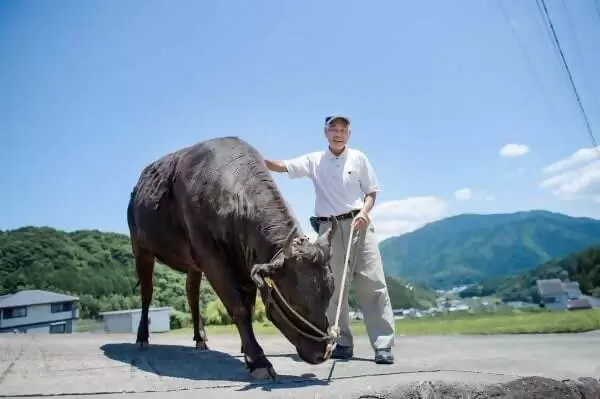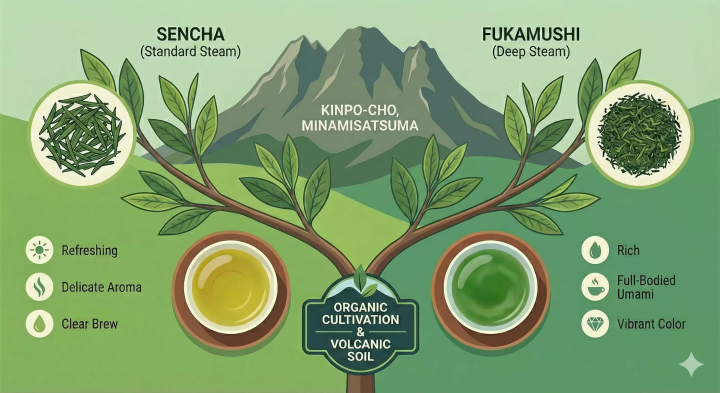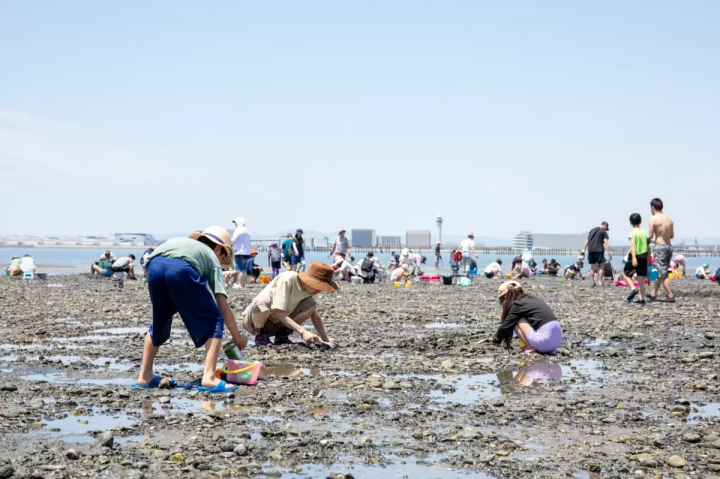Department Stores in Japan: Shopping Features, History, and Major Brands

Japan's department stores have a rich history and unique features that make them loved by a dedicated clientele. Read on to learn how department stores differ from shopping malls, what products you can find, and the appeals of major household names like Mitsukoshi, Isetan, and Takashimaya.
Shop at Japanese Department Stores for Top-Quality Items
Shopping locally is one of the true joys of traveling. If you would like to purchase luxury brand fashion items and accessories at a high-class shop, then you need to visit a Japanese department store (hyakkaten).
This article introduces the history of department stores in Japan and explains how they are different from shopping malls. We also feature major department stores in Japan.
Department Stores in Japan
1. What Kind of Places Are Japanese Department Stores?
2. How are Department Stores and Shopping Malls Different?
3. Regional Department Stores
4. Famous Department Stores in Japan
What Kind of Places Are Japanese Department Stores?

Photo by Pixta
Japanese department stores are highly trusted shopping places that are also used by local residents for purchasing gifts. The history of the department store and their fundamental floor layout is explained directly below.
The History of Japanese Department Stores
Japanese department stores mainly handle luxury brand items and high-quality products carefully selected by their buyers.
Present-day Mitsukoshi Department Store is said to be Japan's oldest department store.
Mitsukoshi was originally a kimono textile shop (*1, gofukuten) called Echigo-ya. In 1905, the company launched its department store business by stating in a newspaper advertisement, "We aim to be the equivalent of an American department store."
As a result of Echigo-ya's newspaper ad, other influential kimono shops started embarking on similar businesses, and this trend led to department stores becoming more widely recognized throughout society.
*1: Gofukuten: A kind of shop that started during the Edo Period (1603-1868) which sold kimonos and other Japanese-style clothing.
Source: Seijo University "Historical Background and Evaluation of Department Stores in Japan" (Japanese)
The Sales Areas and Floor Layout of Japanese Department Stores
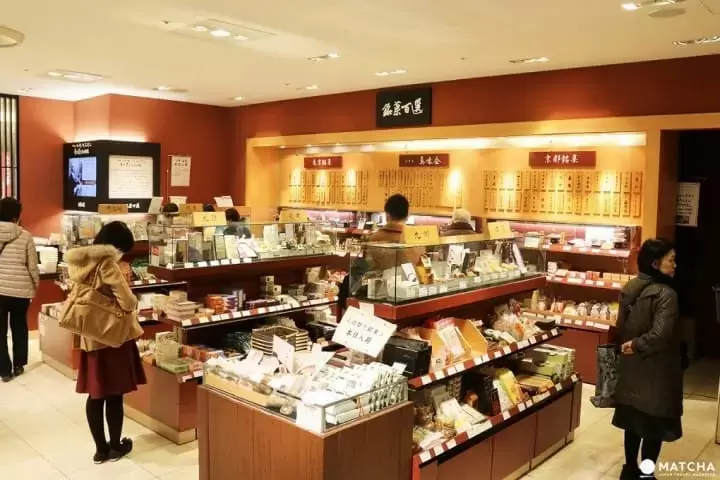
Picture from Find Ideal Souvenirs and Great Services At Shinjuku Takashimaya!
In a typical Japanese department store, the basement floor has direct access to parking and the subway station. The food section which handles prepared food and perishable goods is also usually located on the basement level.
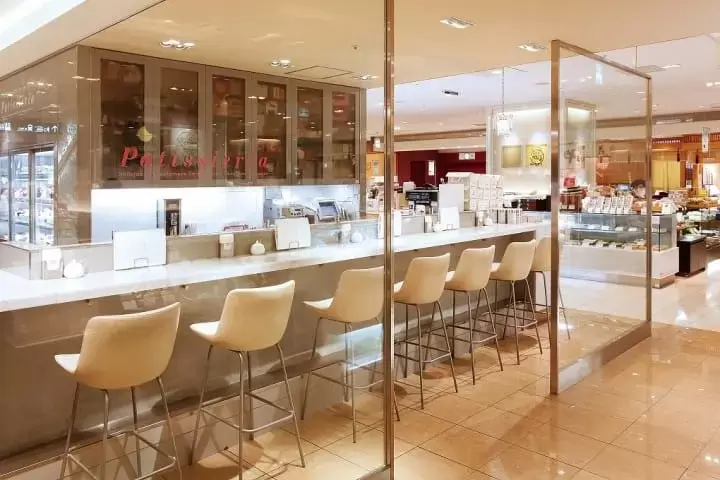
Picture from Find Ideal Souvenirs and Great Services At Shinjuku Takashimaya!
The lower floors of many department stores feature a reception and information counter, as well as the accessories and small items section.
The middle floors usually have men's and women's clothing, and the upper floors have the stationery and miscellaneous goods section, and exhibition space.
The top floor of Japanese department stores is typically a restaurant area.
How are Department Stores and Shopping Malls Different?
The Japanese Ministry of Economy, Trade, and Industry defines a department store as
"Business establishments where the sale of food, clothing, and home-related items account for more than 10% but less than 70% of retail sales, with a staff of 50 or more regular employees"
Citation (Japanese): Ministry of Economy, Trade, and Industry.
Shopping malls also serve as important shopping spots just like department stores do.
Though shopping malls don't really have a standardized definition, it usually refers to a mall-type shopping center. The Japanese Shopping Center Association defines a shopping center as "A group of retail shops and service facilities that are planned, developed, owned, managed and operated as a single unit" (Japanese Source).
Many shopping malls are planned, developed, and managed by a developer for the purposes of urban development. But in the case of department stores, the entities responsible for planning and operations could be a railway company or a standard corporation.
Also, shopping malls, which have a shorter history than department stores, came to be recognized in Japan from the late 1960s. (Japanese Source)
Regional Department Stores in Japan
Many large Japanese cities have department stores that are loved by local residents. Some representative examples of department stores found throughout Japan are listed below.
Hokkaido: Marui Imai
This long-established department store was founded in 1872 and is currently part of Mitsukoshi Isetan Holdings Ltd.
Nagano: Inoue
Inoue started out as a kimono shop in 1885. This department store serves as a cultural hub for Nagano Prefecture.
Hiroshima: Fukuya
This long-established business was founded in 1929 as Hiroshima's first department store. The carnation-adorned wrapping paper shows their "Sincerity of Service to Customers."
Okayama: Tenmaya
Tenmaya was established in 1829 as a notions shop. In addition to Okayama, this department store also has locations in Hiroshima Prefecture and Tottori Prefecture.
Fukuoka: Iwataya
This department store―established in 1754 as a kimono shop―is currently a part of Mitsukoshi Isetan Holdings Ltd.
Kagoshima: Yamakataya
After its founding in 1751, this department came to be loved by the residents of Kagoshima Prefecture as the "hometown department store."
Famous Department Stores in Japan
Japan's famous department stores are attractive spots where the simple act of shopping becomes a memorable experience. Directly below we introduce the famous department stores found in Japan's main cities.
Mitsukoshi

Photo by Pixta
Mitsukoshi Department Store was established in 1673 and got its start as a kimono shop in Tokyo's Nihombashi area. At the present time, it's being managed by Mitsukoshi Isetan Co., Ltd., a subsidiary of Mitsukoshi Isetan Holding Limited.
The Nihombashi Mitsukoshi Main Store is a historic building that has been designated as a National Important Cultural Property. Also, customers are greeted by a pair of impressive lion statues sitting majestically at the main entrance.
The Nihombashi Mitsukoshi Main Store can also assist shoppers by virtue of its concierge service found on each and every floor. If you ever need some help during your shopping excursion, please don't hesitate to approach the concierge counter.
Nihombashi Mitsukoshi Main Store
Location: Tokyo, Chuo, Nihombashi Muromachi 1-4-1
Business Hours: 10:00-19:00 (Food, 1st Floor 10:00-19:30)
Official Homepage: Mitsukoshi Department Store
Isetan
Isetan Department Store was founded in 1886, and got its start as a kimono shop in Tokyo's Kanda district. At the present time, it's being operated by a subsidiary company of Mitsukoshi Isetan Holdings Limited.
The Isetan Shinjuku Main Store is directly connected to Shinjuku 3-chome Station, and carries a wide range of fashion items carefully selected and brought in from many parts of the world.
With its variety of luxury brand items, this is one of Shinjuku's premier shopping spots.
Isetan Shinjuku Store
Location: Tokyo, Shinjuku, Shinjuku 3-14-1
Business Hours: 10:00-20:00
Official Homepage: Isetan Department Store
Takashimaya
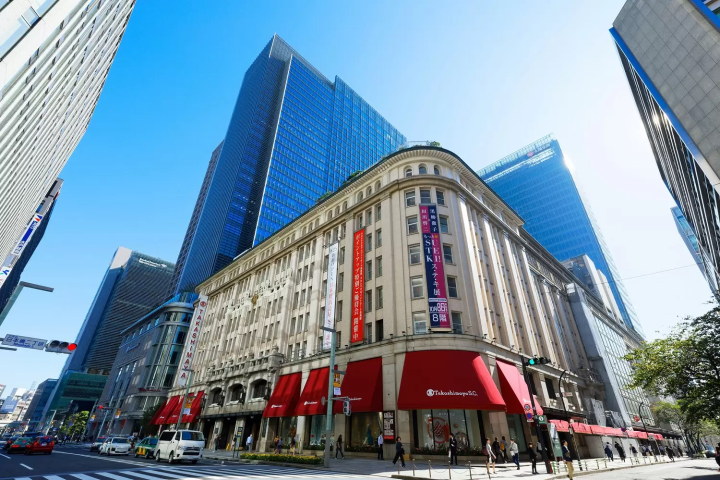
Photo by Pixta
Takashimaya got its start in 1831 as a dealer of used cotton clothing in Kyoto Prefecture. Then in 1855, Takashimaya's founder switched the company's focus from used cotton clothing to kimonos.
Takashimaya founded the Takashimaya Group and it currently operates 13 department stores in Japan as well as four overseas locations.
The Osaka Takashimaya location is home to Japan's largest specialty watch store where many luxury brand items are carried.
The shop is staffed by highly knowledgeable and trained personnel. So feel free to ask some questions including how best to maintain your own watch.
Osaka Takashimaya
Location: Osaka, Osaka, Chuo, Namba 5-1-5
Business Hours: 10:00-20:00 (Some sales areas and shops have different hours).
Official Homepage: Takashimaya Department Store
Daimaru
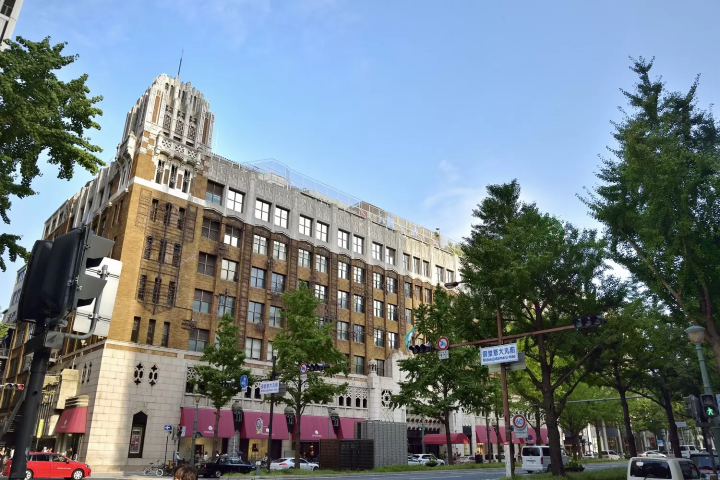
The Daimaru Department Store was founded in 1717 as a used clothing dealer in Kyoto.
In 2007, Daimaru merged with Matsuzakaya and established J. Front Retailing Company Limited. The department store chain is currently managed by Daimaru Matsuzakaya Department Stores, a subsidiary of J. Front Retailing.
Daimaru's base is primarily in the Kansai Region. They opened Daimaru Shinsaibashi in 2009 with the aim of becoming the kind of department store where "customers will go out of their way to visit."
In Daimaru Shinsaibashi's main building, you'll also find cafes where you can experience Japan's pop culture and shops selling traditional crafts, not to mention luxury brand shops as well.
Daimaru Shinsaibashi Store
Location: Osaka, Osaka, Chuo, Shinsaibashisuji 1-7-1
Business Hours: 10:00-20:00 (Some sales areas and stores have different hours).
Official Homepage: Daimaru Department Store
Seibu Department Store
Seibu got its start in 1940 as Musashino Department Store in Tokyo's Ikebukuro area.
In 2006 Seibu became a subsidiary of Seven and & I Holdings Company. Then in 2009 Seibu merged with Sogo Department Store and Sogo Seibu Co., Ltd. was born.
In 2023, Sogo Department Store and Sogo Seibu Co., Ltd. was sold by Seven & I Holdings to an American Investment Fund where it remains today.
At present, there are six department stores bearing the name Seibu: Seibu Ikebukuro, Seibu Shibuya, Seibu Tokorozawa S.C., Seibu Higashi-Totsuka S.C., Seibu Fukui, and Seibu Akita. The Seibu Ikebukuro Main Store is currently (November 2024) undergoing a complete renovation led by an investment fund.
Seibu Department Store
Location: Tokyo, Toshima, Minami Ikebukuro 1-28-1
Business Hours: 10:00-20:00 (Store hours during current renovation. Please note that the hours of some sales areas and shops have changed or stores may be closed).
Official Homepage: Seibu Department Store
Tobu Department Store
Tobu first began in 1962 as Chuo Shoko Co., Ltd., a subsidiary of the Tobu Railway Company. At present, Tobu Department Store is still operated by a group company of Tobu Railway.
There are currently two stores operating under the name Tobu Department Store: the Ikebukuro location and the Funabashi (Chiba Prefecture) location.
The Tobu Ikebukuro location has shops that carry fast fashion (*2) and also appliances, in addition to luxury brand items.
*2 Fast fashion: highly fashionable items such as clothing and footwear that are mass-produced at a low cost and then brought to the market while the demand is still high. Fast fashion is the name of this business model and its corresponding products.
Tobu Department Store
Location: Tokyo, Toshima, Nishi Ikebukuro 1-1-25
Business Hours: 10:00-20:00 (Some sales areas and shops have different hours).
Official Homepage: Tobu Department Store
Hankyu Department Store
Hankyu Department Store has its origins in the Mino Arima Electric Tramway Company, the predecessor of the Hankyu Railway Company, which was established in 1907.
The Hankyu Department Store is also known as the world's first department store to be directly connected to a train station.
H20 Retailing Corporation, which currently manages the Hankyu Department Store, is a company that also operates the Hanshin Department Store.
At the Hankyu Umeda Main Store you can purchase fashion items that are in tune with the latest trends, as well as daily necessities that will enrich your life. On their first floor concourse there's also a gigantic show window where shoppers can enjoy looking at the seasonal decorations.
Hankyu Umeda Main Store
Location: Osaka, Osaka, Kita, Kakudacho 8-7
Business Hours: 10:00-20:00 (Some sales areas and shops have different hours).
Official Homepage: Hankyu Department Store
Tokyu Department Store
Tokyu is a department store that was first founded in 1662 as a kimono shop in Tokyo's Nihombashi district.
The Tokyu Department Store currently operates as Tokyu Department Stores Co., Ltd., a member of the Tokyu Group which also includes the Tokyu Corporation.
Tokyu Department Store's main location was located in Tokyo's Shibuya area, but in 2023 it ceased operations. At the present time, there are three department stores operating under the name Tokyu Department Store: the Kichijoji, Tama Plaza, and Sapporo locations.
Tokyu Department Store also manages a department store called Shibuya Hikariya ShinQs in the Shibuya area. Here you'll find a wide range of items including watches, accessories, and luxury brand cosmetics.
Shibuya Hikariya ShinQs
Location: Tokyo, Shibuya, Shibuya 2-21-1
Business Hours: 11:00-21:00 (Sundays and national holidays 11:00-20:00. Some sales areas and shops have different hours).
Official Homepage: Tokyu Department Store
Enjoy Shopping at Japanese Department Stores
Japanese department stores (hyakkaten) are special shopping spots with their own unique history.
At Japanese department stores, shoppers can find high-quality fashion items, the latest appliances, and daily goods, not to mention luxury brand items.
So please stop in at a department store―also as a way to experience Japanese culture―and enjoy your shopping adventure.
Read also
Written by Cakutama editorial team
Main image by Pixta
This is the official account of MATCHA's editorial department. Our articles feature useful travel information for visitors to Japan, from how-to guides to recommended places to visit.



































![[Kagoshima] Overcoming 12 Years of Hardship: Walking through Minamisatsuma City, the sacred land where the monk Ganjin landed](https://resources.matcha-jp.com/resize/720x2000/2026/02/21-259481.webp)
